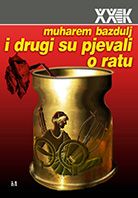
We kindly inform you that, as long as the subject affiliation of our 300.000+ articles is in progress, you might get unsufficient or no results on your third level or second level search. In this case, please broaden your search criteria.

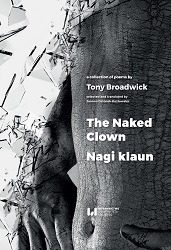
The collection of Tony Broadwick’s poems contains verses of physical desire, love and sex, and loss, loneliness, alcohol, and pain, all related by cause and effect in human life and all affected by the passage of time, which changes even the most intense passions and emotions. The best of the poems, such as A River and a Bridge give concrete expression to life’s strongest hungers. Cleanth Brooks says in The Well Wrought Urn that the mood of poetry is paradox,1 and many of these poems express the bittersweet longing that drives human actions and accomplishments.
More...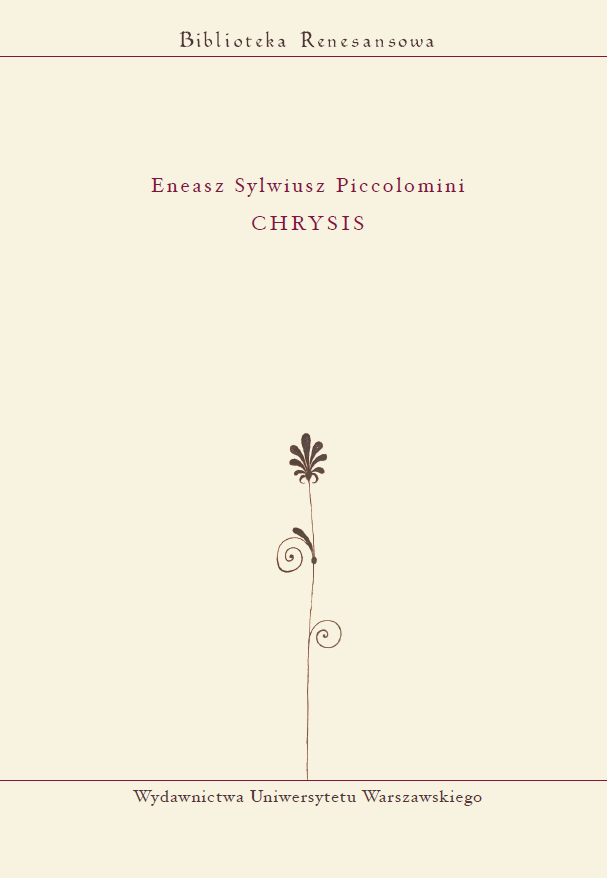
The first Polish translation of the Neo-Latin comedy Chrysis by Aeneas Silvius Piccolomini (later Pope Pius II), made by Ewa Skwara. An excellent example of a humanistic comedy that was written in 15th-century Italy as an expression of imitation and creative competition with the works of Plautus and Terence. A full scientific study for researchers in Renaissance humanism, literary scholars, cultural historians and readers interested in theatre.
More...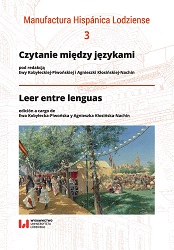
The monograph aims to investigate the intertextual relations between Polish and Spanish written literature. The authors analyze the following issues: links between art and everyday life in Wislawa Szymborska’s and Carlos Bousoño’s poetry; the quest for harmony in the work of both Zbigniew Herbert and Antonio Colinas; characteristics of the literary essay written by Zbigniew Herbert, Octavio Paz and Rafael Argullol; the literary pictures of the political transformation in Poland and Spain (Cercas, Pilch, Karpowicz); the problem of grammatical gender in Polish-Spanish translation on the basis of Michal Witkowski’s novel; Witold Gombrowicz’s presence in Argentinian and Latin American contemporary literature, in particular, in its autofictional aspects and, finally, literary innovations in Alejandro Zambra’s literary work. // Czytać to porównywać, ponieważ każdy akt poznania odwołuje się do zjawisk znanych z poprzednich doświadczeń. Porównując, nie tylko poszerzamy pola tego, co znane, lecz przede wszystkim stawiamy w nowym świetle kategorie już przyswojone, podając je w wątpliwość dzięki odświeżającym kontekstom inności. To wstępne założenie przyświeca prezentowanym szkicom, których celem jest przyjrzenie się wielości związków między literaturami języka hiszpańskiego (zarówno hiszpańską, jak i hispanoamerykańską) a literaturą polską. W tak rozumianym akcie porównania rachunek zysków i strat jest zawsze dostatni: teksty tracą wprawdzie najbliższy i najbardziej oczywisty kontekst (w którym skądinąd funkcjonują w jakimś sensie wygodnie, a w każdym razie naturalnie), ale zyskują nową przestrzeń lektury i nowe możliwości oddziaływania. // Leer es comparar, porque cada acto de percepción remite a objetos ya incorporados a nuestro conocimiento desde experiencias previas. Así, el acto de comparar significa no solo ensanchar el ámbito de lo conocido sino también, y tal sobre todo, arrojar luz sobre lo conocido, poniéndolo en entredicho revalorizando sus fundamentos.Desde presupuesto básico, los autores del presente libro pretenden acercarse a la multitud de relaciones que se cruzan entre la literatura hispánica y la polaca. En esta lógica de “comparación universal”, el balance de ganancias y pérdidas es siempre positivo: si bien los textos pierden su contexto de recepción más cercano y evidente -donde funcionan de manera acomodada o natural- ganan, en cambio, un espacio de lectura nuevo y posibilidades de resonar más poderosamente.
More...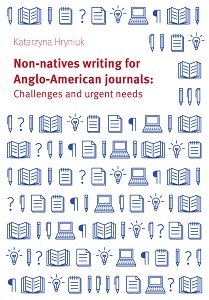
The author presents the problem of writing research articles in English as a foreign language by Polish scholars – specialists in linguistics and applied linguistics – for publication in Anglo-American journals.In her book she explores which aspects of the process are the most challenging for the authors and what needs they have in this area. In the light of the current higher education reform and the new requirement of publishing in international journals, this issue is particularly important.She presents the complex problem of the role of English as a global language in academic communication and the situation of scholars from Poland, a semiperiphery country, who by submitting papers to highly-ranked journals compete with the researchers from the world’s leading countries in this area. When faced with the new challenges, they need to have a highly developed competence of writing in line with the dominant Anglo-American conventions.The author describes the problem presented in the book from a geopolitical point of view and considers the process of writing in English form a social, cognitive and rhetorical perspective. She also explores in detail the core of the issue in an empirical study and tries to diagnose what steps should be undertaken in order to facilitate the publication activities of Polish scholars at the highest international level.
More...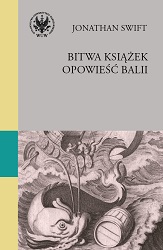
The Battle of the Books and A Tale of a Tub are the most important works in the early satirical writings of Jonathan Swift. They were written between 1695 and 1704. They appear in Polish translation for the first time. In the dispute between the Ancients and the Moderns Swift was a staunch supporter of the Ancients. Their followers believed that classical and biblical thought is continuously influencing us. Swift ridiculed his contemporaries for their cult of science, their religious hypocrisy, for following literary trends, and he did it by brilliantly applying irony and grotesques, creatively construing multi-layered absurdities.
More...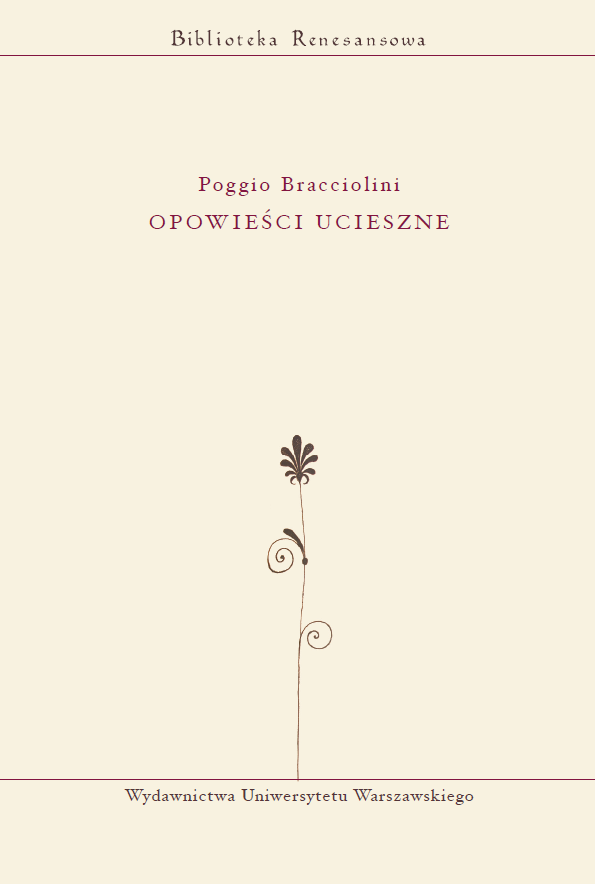
The first Polish translation of Poggio Bracciolini’s Liber facetiarum, an unknown work of 15th-century Renaissance Latin literature, comprised of over 270 moralizing, bawdy, at times scandalous, tales. This piece of literature has greatly influenced the work of many authors, including vernacular Polish ones: Mikołaj Rej and Jan Kochanowski.
More...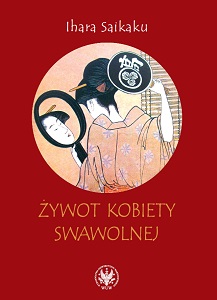
Kōshoku ichidai ona is one of the best-known novels of the seventeenth-century Japanese writer Ihara Saikaku. It consists of six volumes, each containing six stories and illustrated by Yoshida Hanbeia. It shows the story of life and love of the titled, nameless character. It is a confession of a nun, born in an aristocratic family, raised at the court, educated in arts, who becomes a daimyō concubine. When sold, she finds herself in a brothel, where she pursues a courtesan career.
More...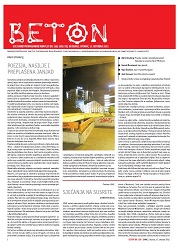
Allen Ginsberg: Poezija, nasilje i preplašena janjad, Sjećanja na susrete (Henri Michaux); Haruki Murakami: Jazz glasnik; Vojo Šindolić: Jazz i Haruki Murakami; Jack Kerouac: Izvorišta radosti u poeziji
More...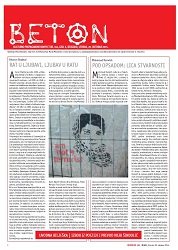
UVODNA BILJEŠKA, Aharon Shabtai: Rat u ljubavi, ljubav u ratu, Mahmoud Darwish: Pod opsadom: lica stvanosti; Mahmoud Darwish: Drugih sjetih se, On je spokojan baš kao ja, Iz poeme ''MURAL'', Zastani, ovdje i sada; Aharon Shabtai: Moje srce, Lotem abdel shafi, Rat, Razlog za život na ovoj zemlji, Mome prijatelju, Pjesma o Neti Golan;
More...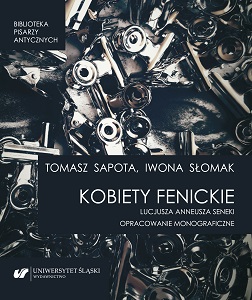
The book is comprised of two parts. In the first part, apart from a general introduction into Seneca’s drama and its early reception, the questions of the title and the composition of Phoeni-cian Women are addressed anew and thoroughly discussed. The authors put forward their own interpretation of these problems accentuating the ties linking the play and the tradition of the Roman declamatory rhetoric. The second part contains a detailed commentary on the Seneca’s drama. The appendix includes a new critical edition of Phoenissae and a Polish translation of the play.
More...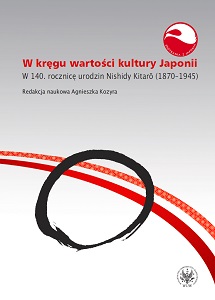
Articles concerned with the philosophy of the Kyoto School and the thought of Nishida Kitarō, thematically linked with the widely understood values of Japanese culture. The authors discuss, among others, vitalism, the Japanese tradition of the Way (of Writing and of the Sword), the ethical aspect of whaling; they also refer to history, art, film studies, folklore, and religion. The collection features articles from the field of literary studies (including a discussion of the beginnings of feminist literature) on the interpretation of poetry and linguistics.
More...
This book is an invitation to the parallel reading of Hans Christian Andersen’s The Snow Queen, Jarosław Iwaszkiewicz’s The Wilko Girls, and Zbigniew Uniłowski’s Wspólny Pokój [The Common Room]. All of the literary inquiries included in it contribute to a coherent narrative of the male otherness in the women’s world. Such a masculinity is based on passivity and withdrawal, uncertainty and anxiety; due to the affects of desire, reluctance, or abjection, it marks the experience of the otherness of the women’s world in terms of both fascination and rejection. Moreover, in the works analysed the female protagonists are presented as complete – if not excessive – whereas the male ones encounter the multiplying lack; in other words, these women immerse in existence, while the men barely reach its surface.
More...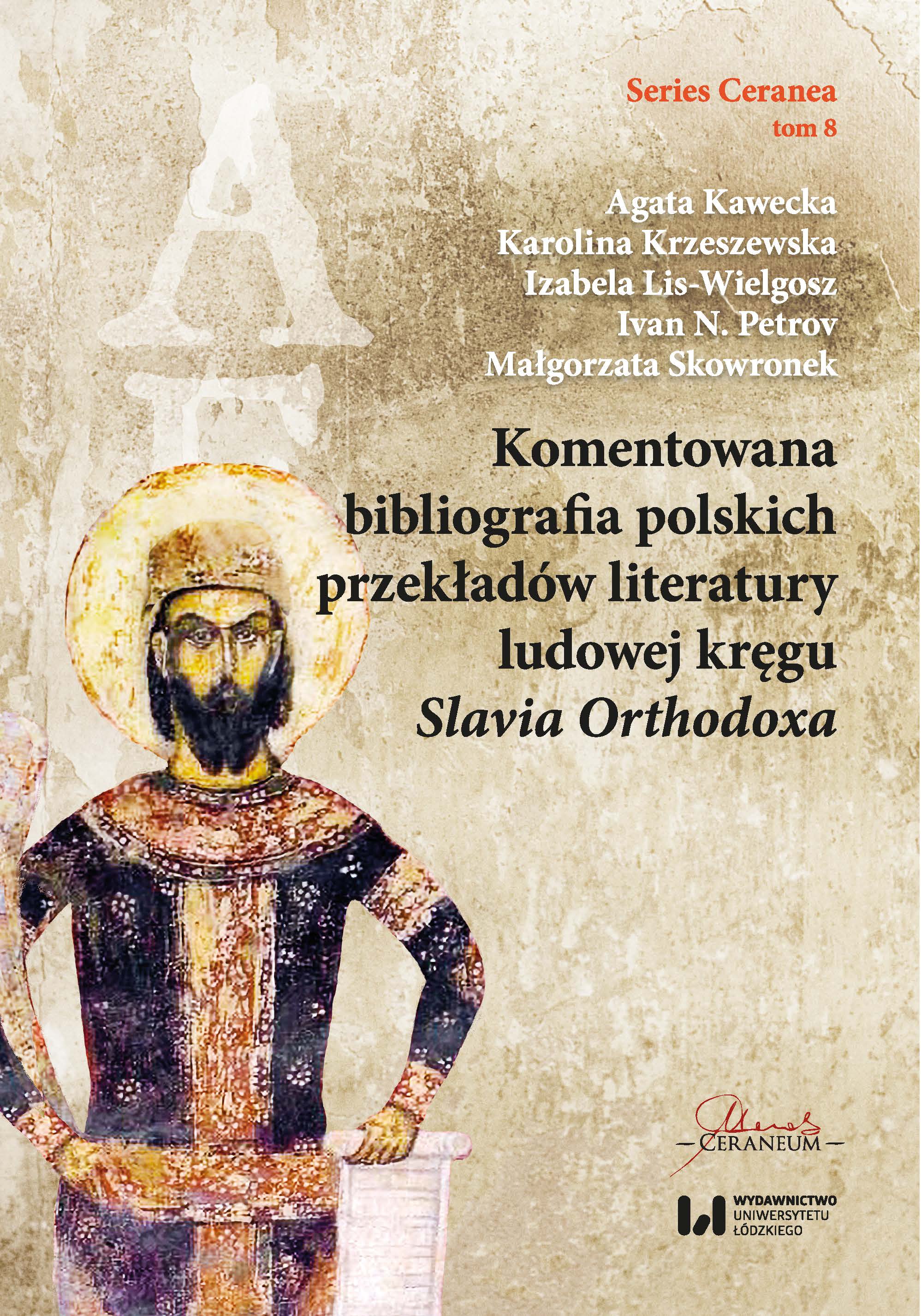
Translations – produced, at varying rates, across the ages – constitute one of the basic components of the reception of Slavia Orthodoxa folk literature in Poland. Their comprehensive description and in-depth analysis require the collection, presentation, and commentary of the bibliographic data concerning the existing translations of the works in question. This is the goal of the present publication.The Bibliography systematizes the Polish translations of folk texts originating from the Slavia Orthodoxa area. The primary division of the source material is based on the criterion of geographic origin: South Slavic vs East Slavic. Within these two groups, the pieces are categorized according to the means of transmission or performance: prose works intended for being retold (fables, legends, folk tales, etc.) and poetic works intended for being sung or recited (songs, including epic songs; ballads, dumas, bylinas, etc.). The bibliographic information concerning the existing translations is presented in chronological order. The bibliography is accompanied by a number of detailed analytic/descriptive studies.
More...
Tertullian was a person of paradoxes. There are problems around the limits of his life, his birth and death, there are contradictory data about his studies, his work (was he really a lawyer?), and there are paradoxes in his theology, in his technique of argumentation and in his style. One of the most paradoxical aspects of his work is that Tertullian, a person belonging to a religious community founded by a Jew and heavily relying on Jewish tenets, attacks the same Jews in his Adversus Iudaeos, 'Against the Jews'. The paper examines Tertullian's literary and rhetorical arsenal in this writing.
More...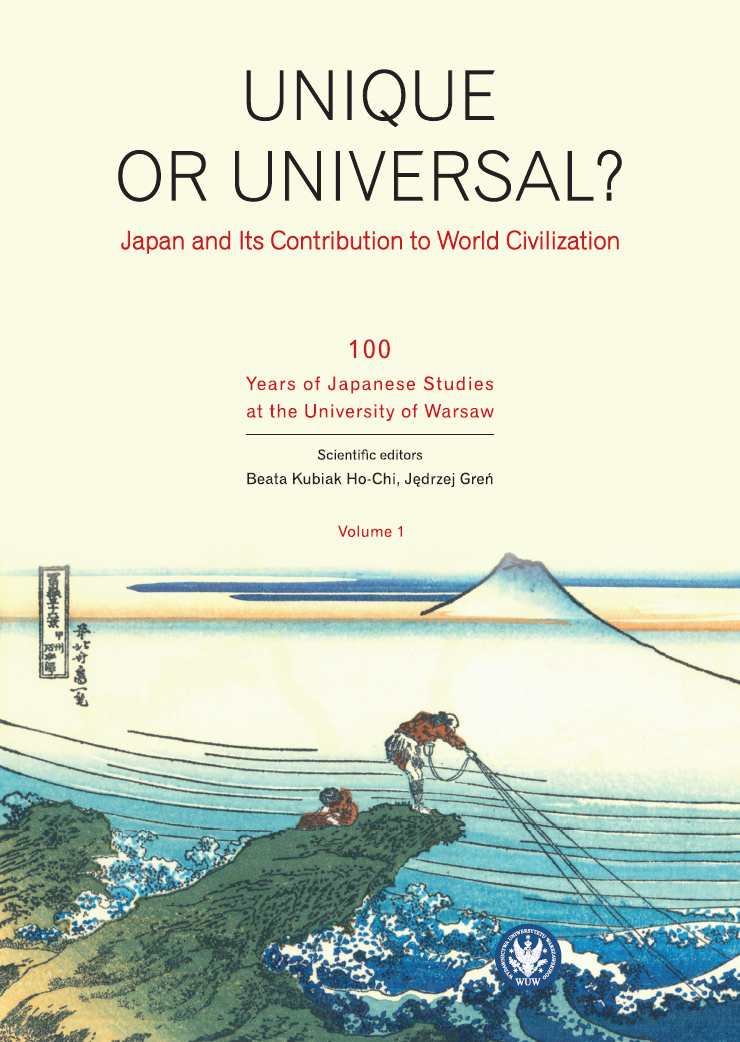
The first volume of texts resulting from the international conference celebrating 100 years of Japanese Studies at the University of Warsaw opens with two texts paying homage to the history and tradition of researching Japan in Poland. In the subsequent chapters researchers specializing in the field of Japanese studies discuss the uniqueness or universality of Japanese philosophy, history, aesthetics, and visual arts, reflecting on Japan’s contribution to world civilization in relation to the globalizing world of blurred boundaries.
More...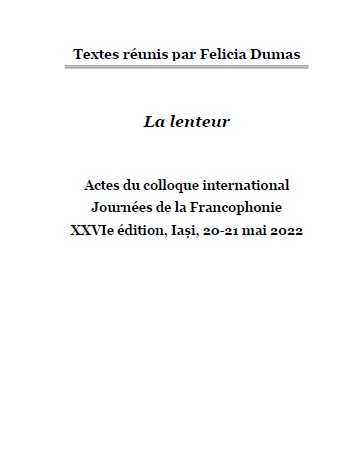
The purpose of this work is to think the dilation of time according to the various forms and directions it can take. We will try to demonstrate that time in the work of Sony Labou Tansi is consubstantially linked to origins and myth. I also think that the ritualization of this time refers to a kind of systematized slowness. The sliding of the characters in their "cursed part" makes temporality potentially slow. Time turns into a redemptive force, capable, by its original structure, to resist the excess and to restore any disorder. The slowness is equivalent, in the work of Labou Tansi, to a mythical conception which bathes the described universe in a culture imbricated in myths, allowing, by all means, to escape the speed of the apocalyptic vision often associated with the excess in the text and context. Temporality, in Tansian work, becomes essentially defined by imagination, by fleeing reality and (thus) by settling in the universe of myth.
More...
In The most secret memory of men, the unclassifiable text by the young Senegalese writer Mohamed Mbougar Sarr, Prix Goncourt 2021, there is a most challenging phrase: “Yes, maybe; but life, I added, is nothing but the hyphen of the word maybe (peut-être)”. The two contradictory yet complementary thrusts meet in Sarr's book are like yin-yang, where the bitter yin incorporates a drop of uplifting cheerfulness and the idlely playful yang banters with a spark of metaphysical languor.
More...
The present paper focuses on the idiosyncratic personality of the french-speaking Egyptian novelist Albert Cossery ; besides centering on one of his most famous novels, Les fainéants dans la vallée fertile (Laziness in the Fertile Valley), we shall also venture to show some particular positions taken and significative facts in the life of this author, who remains undeservedly unknown, and whose stance against the concept of work is exemplary, through its lifelong consistency and through its utterly suprising and paradoxical succes.
More...
Denmark is often ranked as the happiest country in the world, obtaining the first place in the World Report on Happiness in three of the last five years. Denmark is doing a fantastic job reducing the stress of life for its inhabitants. But that does not necessarily separate Denmark from other Nordic countries, like Norway, Sweden, Finland or Iceland, whose residents enjoy a similar quality of life. The secret ingredient of the Danes' happiness is their obsession with "hygge" (pronounced HOO-gah) which translates into a feeling of comfort, conviviality and well-being. It is mainly about warmth, comfort, slowness, intimacy, rusticity and simplicity. Hygge reaffirms a need for stability and harmony within the narrow framework of our private space. It is a philosophy of the moment that attaches to small things and is addressed to everyone without any idea of upheaval or revolt. To live hygge, you have to rejoice in the simple things, accept and love what you already have. In this article, we are going to analyze this concept starting from the work of Meik Wiking, The Book of Hygge.
More...